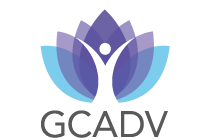The abuse you or someone you know is experiencing or have experienced is not your fault. Our network of domestic violence programs is here to help people stay safe.
What is domestic violence?
Domestic violence is a pattern of abusive behavior or coercive control in any relationship that is used by one person to gain or maintain power and control over another.
Common Ways Abusers Gain or Maintain Power and Control
Often domestic violence can be subtle and can happen slowly in a relationship. Anyone can be abused, and sometimes leaving can be very hard and dangerous due to the abusive partner’s actions.
Abusive partners gain or maintain power and control in many ways. The more an individual tries to pull away from the relationship, the more an abusive partner tries to gain and maintain power and control, often in more dangerous ways. The following is a list of some ways in which someone abusing their partner may use to try to gain and maintain power and control.
DOMESTIC VIOLENCE CAN BE:
- Emotional Abuse
- calling their partner names like fat, ugly, stupid, crazy, sensitive or lazy
- controlling their partner’s everyday life
- blaming their partner when things go wrong
- preventing their partner from talking to people that can help
- humiliating their partner in public or when with friends and family
- manipulating their partner
- acting jealous and isolating their partner from friends and family
- acting in ways that make their partner feel afraid
- Psychological Abuse
- brainwashing their partner or trying to make them confused about reality, making their partner believe that they are “crazy”
- secretly monitoring their partner through technology or other means so that they can exert power and control
- forcing their partner to stay awake for long hours leading to chronic exhaustion
- using religion or other belief systems to promote or defend their abusive behavior
- forcing children to engage in verbal or physical abuse of their partner
- threatening to “out” their partner if they are gay or lesbian
- threatening to have their partner deported if they are undocumented
- switching from violent behavior to kind behavior in order to regain trust of their partner
- Economic Abuse
- controlling the family money
- forcing their partner to give paychecks to the abuser
- not allowing their partner to work, go to school or attend other activities that would provide income
- depriving their partner of money to pay for basic expenses
- trying to get their partner fired from work by calling repeatedly, showing up or causing a disturbance
- taking away their partner’s passport, social security card, driver’s license or other means of independence or identification
- Sexual Abuse
- causing their partner to be hurt during sex
- forcing their partner to perform sexual acts
- having affairs outside of the intimate relationship
- forcing their partner to have sex for money
- purposely infecting their partner with HIV/AIDS or a sexually transmitted illness (STI)
- Physical Abuse
- pinching, poking, slapping, biting, pushing, punching, strangling, burning or cutting
- forcing their partner to take drugs
- hurting their partner’s pet
- taking away their partner’s assistance devices, such as their TTY, glasses, medicine
This includes any behaviors that intimidate, manipulate, humiliate, isolate, frighten, terrorize, coerce, threaten, blame, hurt or injure someone.
Anyone can be abused, and the abuse is not the fault of the victim. Domestic violence can happen to anyone regardless of their class, religion, ethnic background, education, age, gender, disability status, sexual orientation, gender presentation, or immigration status. Sometimes individuals being abused blame themselves for the abuse that is happening to them, but nothing that a person says or does justifies their partner’s use of violence.
Is it abuse?
If you or someone you know is experiencing any of the abusive actions above, it could be a sign of domestic violence in the relationship. Domestic violence is a pattern of abusive behaviors that some individuals use to control others in their family or home, and it tends to get worse over time. If a victim’s partner has ever threatened them, physically harmed them or otherwise made their partner afraid for their safety, taking action to leave, separate or divorce may put a victim in greater danger. Please call Georgia’s 24-Hour domestic violence hotline, 1.800.33.HAVEN
(1.800.334.2836) V/TTY to talk to an advocate about how to plan for safety or how you can assist a friend that may be experiencing domestic violence.
Domestic Violence Is Hard and Dangerous To Escape
The abuser in a relationship can make it very difficult or dangerous for a victim to find safety or leave a relationship. Some of the tactics used above are repeated or intensified when a victim leaves. In fact, a victim’s risk of getting killed by an abuser greatly increases when they are in the process of leaving or have just left a relationship. If you are thinking of leaving a relationship or know of someone who is thinking about or trying to leave a relationship, please share the 24-Hour Statewide Domestic Violence Hotline number with them, 1.800.33.HAVEN (1.800.334.2836) V/TTY. A domestic violence advocate will answer the phone and can offer some plans for safety and other resources.
Common Feelings People Have When They Are Being Abused
A person that is abused may feel confused, depressed, alone, scared, hopeless, angry, wired, humiliated, tired, anxious or numb. An abused person may feel nothing at all or flooded with a lot of emotions. Some people that are abused have physical symptoms, such as headaches, stomach aches, skin problems or pain throughout the body. Domestic violence advocates understand that being in an abusive relationship is hard and that leaving can be dangerous. When you feel the time is right, you can call 1.800.33.HAVEN (1.800.334.2836) V/TTY to talk to a domestic violence advocate about how you are feeling and what you need to stay safe. You do not have to handle abuse alone.
